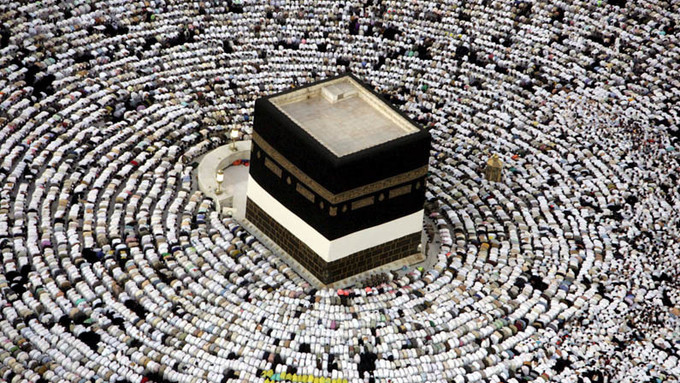Ramadan: The Month of Compassion and Forgiveness
The Month of Ramadan contains many attributes and blessings. It is the month of fasting to grow in awe of Allah (Mighty and Sublime), cultivating sincerity, renewing patience, standing at night in prayer and commiserating with the needy and oppressed. This magnificent and blessed month also has built into it the qualities of compassion and forgiveness.
It is narrated on the authority of Salman the Persian (may Allah be pleased with him) that the Messenger of Allah (prayers and peace be upon him and his family) stated, “It is the month [of Ramadan] in which the first of it is mercy, the middle of it is forgiveness and the last of it being liberation from the hell-fire.”1
As there is a difference on the soundness of this narration from the Sahih of ibn Khuzaymah, there is no doubt that the month of Ramadan is a time of mercy. It is the month in which the Qur’an was revealed to the Prophet (prayers and peace be upon him and his family), the Mercy to the Worlds.2 From Allah’s expansive compassion, He gives the reward to the sincere who recite the one letter of the Qur’an “10 good deeds” for each letter3 in which this reward is increased during the month of Ramadan.
The special compassion in which the Creator extends unto believers during the blessed month also comes with His enveloping forgiveness. The Prophet (prayers and peace be upon him and his family) said, “Whoever fasts Ramadan, knows its limits, and guards what should be guarded in it, it will be an expiation for him of what came before.”4 The expansive forgiveness of Allah (Mighty & Sublime) is such that sincere fasters come out of Ramadan, the 9th month on the Islamic calendar, with clean slates from their sins similar to how babies are born without sins after being in the wombs of their mothers for nine months. The Prophet (prayers and peace be upon him and his family) also stated regarding the Night of Power which is one of the odd nights in the last 10 in Ramadan: “Whoever stands [in worship] in the Night of Power out of faith and seeking reward, their previous sins shall be forgiven.”5
The aspects of compassion and forgiveness which are amplified during the mighty month of Ramadan should manifest themselves in our spiritual dispositions towards creation. In other words, believers who seek to please Allah knowing that His mercy and forgiveness are extended greatly during the month of fasting should translate into a heightened awareness and greater spiritual beauty in our dealings with fellow human beings. Prophet Muhammad (prayers and peace be upon him and his family) stated, “Allah does not show mercy to he who does not show mercy to people.”6 He also said, “Whoever does not show compassion, shall not receive compassion, and whoever does not forgive, shall not be forgiven.”7 Mercy and forgiveness shown to those walking this earth is not limited to Muslims alone; these are spiritual qualities to be extended to all human beings.
Forgiveness in the Arabic language is related to the word “covering”.8 When Allah (Mighty and Sublime) forgives His servants’ sins, those sins are covered on their books of bad deeds as if those sins never took place. Hence when believers filled with compassion truly forgive those who have wronged them, they cover up in their hearts the wrong that was done to them, not bringing those wrongs up to browbeat people with later or to use as leverage against them. Forgiveness or covering up the wrongs in no way means allowing patterns of continued abuse against ourselves. It is to say, however, that sincere forgiveness is to not harbor animosity against those who have done us wrong. Having mercy for others is in not punishing them when afforded the opportunity to. Forgiving those who have wronged us benefits the merciful and forgiving ones, just as benefit comes to the ones shown compassion and forgiveness.
Such compassion and forgiveness was exemplified by the Messenger of Allah (prayers and peace be upon him and his family) during the blessed month when he and his pious companions (may Allah be pleased with them) entered Makkah upon its conquest. Though he could have easily punished those who drove him and his family out of Makkah and those who killed several of his companions, he provided amnesty on that day, the 20th of Ramadan. He modeled the beautiful attributes of mercy and forgiveness during the month in which Divine mercy and forgiveness increases. As we seek the pleasure of our Creator during the month of Ramadan in which His compassion and forgiveness are magnified, let us strive to embody the qualities of compassion and mercy in ourselves when seeking Divine presence.
2. Al-Qur’an, Surah al-Anbiya, Ayah 107
3. At-Tirmidhi, Sunan at-Tirmidhi, Hadith #2910
4. Al-Bayhaqi, Sunan al-Kubra, Hadith #8296; Ahmad bin Hanbal, Musnad Ahmad, Hadith #11130; Ibn Hibban, Sahih ibn Hibbad, Hadith #3433
5. Al-Bukhari, Sahih al-Bukhari, Hadith #1802; Muslim, Sahih Muslim, Hadith #1268
6. Al-Bukhari, Al-Adab al-Mufrad, Hadith #94
7. Al-Haythami, Majmu’ az-Zawa’id; Hadith #17478
8. Ibn ash-Shajari, Ma Ittafaqa Lafz wa Ikhtalafa Ma’nahu, Page 226
Faith & Spirituality Related Articles

5 Practical Steps To Get You Ready for Ramadan
As Ramadan is less than a month away, we might feel we often haven't done enough to prepare for it. Here are 5 things we can do right now during Shaban to make sure that we get the most out of Ramadan. The Prophet (Peace & Blessings upon Him & His Family) supplicated,” O Allah give us the blessings of Shaban and give us the treasure of Ramadan.”

Hajj at Home: Kindling the Spirit of Arafah
Even if we are not on Hajj this year, our situation is no different. We navigate through the complexities of our daily life, immersed in the never-ending responsibilities of work and family, inundated with the intrusions of technology and social media into every minute of our lives, moving from place to place and idea to idea.
